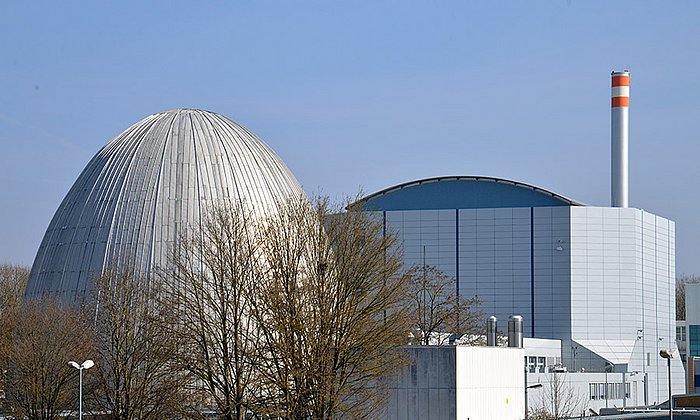New fuel with low enriched uranium-molybdenum alloy
Pioneering work: Prototype of a new fuel

The Technical University of Munich and the French fuel element manufacturer Framatome have agreed to collaborate with the aim of producing new, low-enriched fuel elements for the research neutron source Heinz Maier-Leibnitz in Garching north of Munich.
The contract provides for a joint pilot project to manufacture a monolithic U-Mo fuel with an enrichment of 19.75%. It includes the development of a pilot production line and thus the production of fuel plates for radiation tests. These tests are a central part of the qualification of the new fuel especially for research reactors in Europe.
"We have invested many years of research work," says TUM President Prof. Thomas F. Hofmann. "With this project we are on the way to the future. We want to create the basis for the use of safe, low-enriched research neutron sources in science as well as for medical and industrial applications."
First results expected for 2022
The pilot production will be set up at Framatome's new research and development laboratory, the "CERCA Research and Innovation Laboratory", in Romans-sur-Isère in France. Six specialists form the project team, including scientists from TUM.
A TUM PhD student will be working directly at Framatome on the pilot production line from summer 2020. The production line will go into operation as early as the beginning of 2021 and will supply fuel for irradiation tests and qualifying from 2022. In the initial phase, certain sub-steps will be supplied from the TUM laboratories.
Cooperation with Belgium and France
TUM and Framatome are carrying out these irradiation tests within the framework of European projects in which the French Alternative Energies and Atomic Energy Commission (CEA), the research institute Laue-Langevin and the Belgian nuclear research centre (SCK-CEN) are also involved.
"The development of this fuel is a big step forward, several international teams have been researching this task for years. The success of this project will be of great importance worldwide", says Prof. Dr. Peter Müller-Buschbaum, scientific director of the FRM II.
Other research reactors worldwide benefit
The monolithic U-Mo fuel opens up new possibilities for conversion to lower enrichment fuels, not only for FRM II, but for research reactors worldwide.
"We are offering research reactors an alternative way to maintain the high neutron flux for research, industry and medicine, while reducing the enrichment of the fuel", says Francois Gauché, Director of Framatome-CERCA.
As soon as this fuel with lower enriched uranium – ideally with an enrichment below 20 percent – is qualified and industrially available, research reactors such as FRM II can start to convert to the new fuel.
Technical University of Munich
Corporate Communications Center
- Anke Goerg (FRM II) / Andreas Battenberg
- battenberg@zv.tum.de
- presse@tum.de
- Teamwebsite


